C++ isn't assembly, like C it comes with a lot of infrastructure. In addition to the overheads of C - required to be compatible with the C abi - C++ also has its own variants of many things, and it also has to have all the tear-up and -down code required to provide the many guarantees of the language.
Much of these are provided by libraries, but some of it has to be in the executable itself so that a failure to load shared libraries could be handled.
Under Linux/BSD we can reverse engineer an executable with objdump -dsl. I took the following code:
int main() {}
and compiled it with:
g++ -Wall -O3 -g0 test.cpp -o test.exe
The resulting executable?
6922 bytes
Then I compiled with less cruft:
g++ -Wall -O3 -g0 test.cpp -o test.exe -nostdlib
/usr/bin/ld: warning: cannot find entry symbol _start; defaulting to 0000000000400150
Basically: main is a facade entry point for our C++ code, the program really starts at _start.
Executable size?
1454 bytes
Here's how objdump describes the two:
g++ -Wall -O3 -g0 test.cpp -o test.exe
objdump -test.exe
test.exe: file format elf64-x86-64
Contents of section .interp:
400200 2f6c6962 36342f6c 642d6c69 6e75782d /lib64/ld-linux-
400210 7838362d 36342e73 6f2e3200 x86-64.so.2.
Contents of section .note.ABI-tag:
40021c 04000000 10000000 01000000 474e5500 ............GNU.
40022c 00000000 02000000 06000000 12000000 ................
Contents of section .note.gnu.build-id:
40023c 04000000 14000000 03000000 474e5500 ............GNU.
40024c a0f55c7d 671f9eb2 93078fd3 0f52581a ..\}g........RX.
40025c 544829b2 TH).
Contents of section .hash:
400260 03000000 06000000 02000000 05000000 ................
400270 00000000 00000000 00000000 01000000 ................
400280 00000000 03000000 04000000 ............
Contents of section .dynsym:
400290 00000000 00000000 00000000 00000000 ................
4002a0 00000000 00000000 10000000 20000000 ............ ...
4002b0 00000000 00000000 00000000 00000000 ................
4002c0 1f000000 20000000 00000000 00000000 .... ...........
4002d0 00000000 00000000 8b000000 12000000 ................
4002e0 00000000 00000000 00000000 00000000 ................
4002f0 33000000 20000000 00000000 00000000 3... ...........
400300 00000000 00000000 4f000000 20000000 ........O... ...
400310 00000000 00000000 00000000 00000000 ................
Contents of section .dynstr:
400320 006c6962 73746463 2b2b2e73 6f2e3600 .libstdc++.so.6.
400330 5f5f676d 6f6e5f73 74617274 5f5f005f __gmon_start__._
400340 4a765f52 65676973 74657243 6c617373 Jv_RegisterClass
400350 6573005f 49544d5f 64657265 67697374 es._ITM_deregist
400360 6572544d 436c6f6e 65546162 6c65005f erTMCloneTable._
400370 49544d5f 72656769 73746572 544d436c ITM_registerTMCl
400380 6f6e6554 61626c65 006c6962 6d2e736f oneTable.libm.so
400390 2e36006c 69626763 635f732e 736f2e31 .6.libgcc_s.so.1
4003a0 006c6962 632e736f 2e36005f 5f6c6962 .libc.so.6.__lib
4003b0 635f7374 6172745f 6d61696e 00474c49 c_start_main.GLI
4003c0 42435f32 2e322e35 00 BC_2.2.5.
Contents of section .gnu.version:
4003ca 00000000 00000200 00000000 ............
Contents of section .gnu.version_r:
4003d8 01000100 81000000 10000000 00000000 ................
4003e8 751a6909 00000200 9d000000 00000000 u.i.............
Contents of section .rela.dyn:
4003f8 50096000 00000000 06000000 01000000 P.`.............
400408 00000000 00000000 ........
Contents of section .rela.plt:
400410 70096000 00000000 07000000 03000000 p.`.............
400420 00000000 00000000 ........
Contents of section .init:
400428 4883ec08 e85b0000 00e86a01 0000e845 H....[....j....E
400438 02000048 83c408c3 ...H....
Contents of section .plt:
400440 ff351a05 2000ff25 1c052000 0f1f4000 .5.. ..%.. ...@.
400450 ff251a05 20006800 000000e9 e0ffffff .%.. .h.........
Contents of section .text:
400460 31ed4989 d15e4889 e24883e4 f0505449 1.I..^H..H...PTI
400470 c7c0e005 400048c7 c1f00540 0048c7c7 ....@.H....@.H..
400480 d0054000 e8c7ffff fff49090 4883ec08 ..@.........H...
400490 488b05b9 04200048 85c07402 ffd04883 H.... .H..t...H.
4004a0 c408c390 90909090 90909090 90909090 ................
4004b0 90909090 90909090 90909090 90909090 ................
4004c0 b88f0960 00482d88 09600048 83f80e76 ...`.H-..`.H...v
4004d0 17b80000 00004885 c0740dbf 88096000 ......H..t....`.
4004e0 ffe0660f 1f440000 f3c3660f 1f440000 ..f..D....f..D..
4004f0 be880960 004881ee 88096000 48c1fe03 ...`.H....`.H...
400500 4889f048 c1e83f48 01c648d1 fe7411b8 H..H..?H..H..t..
400510 00000000 4885c074 07bf8809 6000ffe0 ....H..t....`...
400520 f3c36666 6666662e 0f1f8400 00000000 ..fffff.........
400530 803d5104 20000075 5f5553bb 80076000 .=Q. ..u_US...`.
400540 4881eb78 07600048 83ec0848 8b053e04 H..x.`.H...H..>.
400550 200048c1 fb034883 eb01488d 6c241048 .H...H...H.l$.H
400560 39d87322 0f1f4000 4883c001 4889051d 9.s"..@.H...H...
400570 042000ff 14c57807 6000488b 050f0420 . ....x.`.H....
400580 004839d8 72e2e835 ffffffc6 05f60320 .H9.r..5.......
400590 00014883 c4085b5d f3c3660f 1f440000 ..H...[]..f..D..
4005a0 bf880760 0048833f 007505e9 40ffffff ...`.H.?.u..@...
4005b0 b8000000 004885c0 74f15548 89e5ffd0 .....H..t.UH....
4005c0 5de92aff ffff9090 90909090 90909090 ].*.............
4005d0 31c0c390 90909090 90909090 90909090 1...............
4005e0 f3c36666 6666662e 0f1f8400 00000000 ..fffff.........
4005f0 48896c24 d84c8964 24e0488d 2d630120 H.l$.L.d$.H.-c.
400600 004c8d25 5c012000 4c896c24 e84c8974 .L.%\. .L.l$.L.t
400610 24f04c89 7c24f848 895c24d0 4883ec38 $.L.|$.H.\$.H..8
400620 4c29e541 89fd4989 f648c1fd 034989d7 L).A..I..H...I..
400630 e8f3fdff ff4885ed 741c31db 0f1f4000 .....H..t.1...@.
400640 4c89fa4c 89f64489 ef41ff14 dc4883c3 L..L..D..A...H..
400650 014839eb 72ea488b 5c240848 8b6c2410 .H9.r.H.\$.H.l$.
400660 4c8b6424 184c8b6c 24204c8b 7424284c L.d$.L.l$ L.t$(L
400670 8b7c2430 4883c438 c3909090 90909090 .|$0H..8........
400680 554889e5 53bb6807 60004883 ec08488b UH..S.h.`.H...H.
400690 05d30020 004883f8 ff74140f 1f440000 ... .H...t...D..
4006a0 4883eb08 ffd0488b 034883f8 ff75f148 H.....H..H...u.H
4006b0 83c4085b 5dc39090 ...[]...
Contents of section .fini:
4006b8 4883ec08 e86ffeff ff4883c4 08c3 H....o...H....
Contents of section .rodata:
4006c8 01000200 ....
Contents of section .eh_frame_hdr:
4006cc 011b033b 20000000 03000000 04ffffff ...; ...........
4006dc 3c000000 14ffffff 54000000 24ffffff <.......T...$...
4006ec 6c000000 l...
Contents of section .eh_frame:
4006f0 14000000 00000000 017a5200 01781001 .........zR..x..
400700 1b0c0708 90010000 14000000 1c000000 ................
400710 c0feffff 03000000 00000000 00000000 ................
400720 14000000 34000000 b8feffff 02000000 ....4...........
400730 00000000 00000000 24000000 4c000000 ........$...L...
400740 b0feffff 89000000 00518c05 86065f0e .........Q...._.
400750 4083078f 028e038d 0402580e 08000000 @.........X.....
400760 00000000 ....
Contents of section .ctors:
600768 ffffffff ffffffff 00000000 00000000 ................
Contents of section .dtors:
600778 ffffffff ffffffff 00000000 00000000 ................
Contents of section .jcr:
600788 00000000 00000000 ........
Contents of section .dynamic:
600790 01000000 00000000 01000000 00000000 ................
6007a0 01000000 00000000 69000000 00000000 ........i.......
6007b0 01000000 00000000 73000000 00000000 ........s.......
6007c0 01000000 00000000 81000000 00000000 ................
6007d0 0c000000 00000000 28044000 00000000 ........(.@.....
6007e0 0d000000 00000000 b8064000 00000000 ..........@.....
6007f0 04000000 00000000 60024000 00000000 ........`.@.....
600800 05000000 00000000 20034000 00000000 ........ .@.....
600810 06000000 00000000 90024000 00000000 ..........@.....
600820 0a000000 00000000 a9000000 00000000 ................
600830 0b000000 00000000 18000000 00000000 ................
600840 15000000 00000000 00000000 00000000 ................
600850 03000000 00000000 58096000 00000000 ........X.`.....
600860 02000000 00000000 18000000 00000000 ................
600870 14000000 00000000 07000000 00000000 ................
600880 17000000 00000000 10044000 00000000 ..........@.....
600890 07000000 00000000 f8034000 00000000 ..........@.....
6008a0 08000000 00000000 18000000 00000000 ................
6008b0 09000000 00000000 18000000 00000000 ................
6008c0 feffff6f 00000000 d8034000 00000000 ...o......@.....
6008d0 ffffff6f 00000000 01000000 00000000 ...o............
6008e0 f0ffff6f 00000000 ca034000 00000000 ...o......@.....
6008f0 00000000 00000000 00000000 00000000 ................
600900 00000000 00000000 00000000 00000000 ................
600910 00000000 00000000 00000000 00000000 ................
600920 00000000 00000000 00000000 00000000 ................
600930 00000000 00000000 00000000 00000000 ................
600940 00000000 00000000 00000000 00000000 ................
Contents of section .got:
600950 00000000 00000000 ........
Contents of section .got.plt:
600958 90076000 00000000 00000000 00000000 ..`.............
600968 00000000 00000000 56044000 00000000 ........V.@.....
Contents of section .data:
600978 00000000 00000000 00000000 00000000 ................
Contents of section .comment:
0000 4743433a 2028474e 55292034 2e342e37 GCC: (GNU) 4.4.7
0010 20323031 32303331 33202852 65642048 20120313 (Red H
0020 61742034 2e342e37 2d313129 00474343 at 4.4.7-11).GCC
0030 3a202847 4e552920 342e392e 782d676f : (GNU) 4.9.x-go
0040 6f676c65 20323031 35303132 33202870 ogle 20150123 (p
0050 72657265 6c656173 652900 rerelease).
Disassembly of section .init:
0000000000400428 <_init>:
_init():
400428: 48 83 ec 08 sub $0x8,%rsp
40042c: e8 5b 00 00 00 callq 40048c <call_gmon_start>
400431: e8 6a 01 00 00 callq 4005a0 <frame_dummy>
400436: e8 45 02 00 00 callq 400680 <__do_global_ctors_aux>
40043b: 48 83 c4 08 add $0x8,%rsp
40043f: c3 retq
Disassembly of section .plt:
0000000000400440 <__libc_start_main@plt-0x10>:
400440: ff 35 1a 05 20 00 pushq 0x20051a(%rip) # 600960 <_GLOBAL_OFFSET_TABLE_+0x8>
400446: ff 25 1c 05 20 00 jmpq *0x20051c(%rip) # 600968 <_GLOBAL_OFFSET_TABLE_+0x10>
40044c: 0f 1f 40 00 nopl 0x0(%rax)
0000000000400450 <__libc_start_main@plt>:
400450: ff 25 1a 05 20 00 jmpq *0x20051a(%rip) # 600970 <_GLOBAL_OFFSET_TABLE_+0x18>
400456: 68 00 00 00 00 pushq $0x0
40045b: e9 e0 ff ff ff jmpq 400440 <_init+0x18>
Disassembly of section .text:
0000000000400460 <_start>:
_start():
400460: 31 ed xor %ebp,%ebp
400462: 49 89 d1 mov %rdx,%r9
400465: 5e pop %rsi
400466: 48 89 e2 mov %rsp,%rdx
400469: 48 83 e4 f0 and $0xfffffffffffffff0,%rsp
40046d: 50 push %rax
40046e: 54 push %rsp
40046f: 49 c7 c0 e0 05 40 00 mov $0x4005e0,%r8
400476: 48 c7 c1 f0 05 40 00 mov $0x4005f0,%rcx
40047d: 48 c7 c7 d0 05 40 00 mov $0x4005d0,%rdi
400484: e8 c7 ff ff ff callq 400450 <__libc_start_main@plt>
400489: f4 hlt
40048a: 90 nop
40048b: 90 nop
000000000040048c <call_gmon_start>:
call_gmon_start():
40048c: 48 83 ec 08 sub $0x8,%rsp
400490: 48 8b 05 b9 04 20 00 mov 0x2004b9(%rip),%rax # 600950 <_DYNAMIC+0x1c0>
400497: 48 85 c0 test %rax,%rax
40049a: 74 02 je 40049e <call_gmon_start+0x12>
40049c: ff d0 callq *%rax
40049e: 48 83 c4 08 add $0x8,%rsp
4004a2: c3 retq
4004a3: 90 nop
4004a4: 90 nop
4004a5: 90 nop
4004a6: 90 nop
4004a7: 90 nop
4004a8: 90 nop
4004a9: 90 nop
4004aa: 90 nop
4004ab: 90 nop
4004ac: 90 nop
4004ad: 90 nop
4004ae: 90 nop
4004af: 90 nop
4004b0: 90 nop
4004b1: 90 nop
4004b2: 90 nop
4004b3: 90 nop
4004b4: 90 nop
4004b5: 90 nop
4004b6: 90 nop
4004b7: 90 nop
4004b8: 90 nop
4004b9: 90 nop
4004ba: 90 nop
4004bb: 90 nop
4004bc: 90 nop
4004bd: 90 nop
4004be: 90 nop
4004bf: 90 nop
00000000004004c0 <deregister_tm_clones>:
deregister_tm_clones():
4004c0: b8 8f 09 60 00 mov $0x60098f,%eax
4004c5: 48 2d 88 09 60 00 sub $0x600988,%rax
4004cb: 48 83 f8 0e cmp $0xe,%rax
4004cf: 76 17 jbe 4004e8 <deregister_tm_clones+0x28>
4004d1: b8 00 00 00 00 mov $0x0,%eax
4004d6: 48 85 c0 test %rax,%rax
4004d9: 74 0d je 4004e8 <deregister_tm_clones+0x28>
4004db: bf 88 09 60 00 mov $0x600988,%edi
4004e0: ff e0 jmpq *%rax
4004e2: 66 0f 1f 44 00 00 nopw 0x0(%rax,%rax,1)
4004e8: f3 c3 repz retq
4004ea: 66 0f 1f 44 00 00 nopw 0x0(%rax,%rax,1)
00000000004004f0 <register_tm_clones>:
register_tm_clones():
4004f0: be 88 09 60 00 mov $0x600988,%esi
4004f5: 48 81 ee 88 09 60 00 sub $0x600988,%rsi
4004fc: 48 c1 fe 03 sar $0x3,%rsi
400500: 48 89 f0 mov %rsi,%rax
400503: 48 c1 e8 3f shr $0x3f,%rax
400507: 48 01 c6 add %rax,%rsi
40050a: 48 d1 fe sar %rsi
40050d: 74 11 je 400520 <register_tm_clones+0x30>
40050f: b8 00 00 00 00 mov $0x0,%eax
400514: 48 85 c0 test %rax,%rax
400517: 74 07 je 400520 <register_tm_clones+0x30>
400519: bf 88 09 60 00 mov $0x600988,%edi
40051e: ff e0 jmpq *%rax
400520: f3 c3 repz retq
400522: 66 66 66 66 66 2e 0f data32 data32 data32 data32 nopw %cs:0x0(%rax,%rax,1)
400529: 1f 84 00 00 00 00 00
0000000000400530 <__do_global_dtors_aux>:
__do_global_dtors_aux():
400530: 80 3d 51 04 20 00 00 cmpb $0x0,0x200451(%rip) # 600988 <__bss_start>
400537: 75 5f jne 400598 <__do_global_dtors_aux+0x68>
400539: 55 push %rbp
40053a: 53 push %rbx
40053b: bb 80 07 60 00 mov $0x600780,%ebx
400540: 48 81 eb 78 07 60 00 sub $0x600778,%rbx
400547: 48 83 ec 08 sub $0x8,%rsp
40054b: 48 8b 05 3e 04 20 00 mov 0x20043e(%rip),%rax # 600990 <dtor_idx.6648>
400552: 48 c1 fb 03 sar $0x3,%rbx
400556: 48 83 eb 01 sub $0x1,%rbx
40055a: 48 8d 6c 24 10 lea 0x10(%rsp),%rbp
40055f: 48 39 d8 cmp %rbx,%rax
400562: 73 22 jae 400586 <__do_global_dtors_aux+0x56>
400564: 0f 1f 40 00 nopl 0x0(%rax)
400568: 48 83 c0 01 add $0x1,%rax
40056c: 48 89 05 1d 04 20 00 mov %rax,0x20041d(%rip) # 600990 <dtor_idx.6648>
400573: ff 14 c5 78 07 60 00 callq *0x600778(,%rax,8)
40057a: 48 8b 05 0f 04 20 00 mov 0x20040f(%rip),%rax # 600990 <dtor_idx.6648>
400581: 48 39 d8 cmp %rbx,%rax
400584: 72 e2 jb 400568 <__do_global_dtors_aux+0x38>
400586: e8 35 ff ff ff callq 4004c0 <deregister_tm_clones>
40058b: c6 05 f6 03 20 00 01 movb $0x1,0x2003f6(%rip) # 600988 <__bss_start>
400592: 48 83 c4 08 add $0x8,%rsp
400596: 5b pop %rbx
400597: 5d pop %rbp
400598: f3 c3 repz retq
40059a: 66 0f 1f 44 00 00 nopw 0x0(%rax,%rax,1)
00000000004005a0 <frame_dummy>:
frame_dummy():
4005a0: bf 88 07 60 00 mov $0x600788,%edi
4005a5: 48 83 3f 00 cmpq $0x0,(%rdi)
4005a9: 75 05 jne 4005b0 <frame_dummy+0x10>
4005ab: e9 40 ff ff ff jmpq 4004f0 <register_tm_clones>
4005b0: b8 00 00 00 00 mov $0x0,%eax
4005b5: 48 85 c0 test %rax,%rax
4005b8: 74 f1 je 4005ab <frame_dummy+0xb>
4005ba: 55 push %rbp
4005bb: 48 89 e5 mov %rsp,%rbp
4005be: ff d0 callq *%rax
4005c0: 5d pop %rbp
4005c1: e9 2a ff ff ff jmpq 4004f0 <register_tm_clones>
4005c6: 90 nop
4005c7: 90 nop
4005c8: 90 nop
4005c9: 90 nop
4005ca: 90 nop
4005cb: 90 nop
4005cc: 90 nop
4005cd: 90 nop
4005ce: 90 nop
4005cf: 90 nop
00000000004005d0 <main>:
main():
4005d0: 31 c0 xor %eax,%eax
4005d2: c3 retq
4005d3: 90 nop
4005d4: 90 nop
4005d5: 90 nop
4005d6: 90 nop
4005d7: 90 nop
4005d8: 90 nop
4005d9: 90 nop
4005da: 90 nop
4005db: 90 nop
4005dc: 90 nop
4005dd: 90 nop
4005de: 90 nop
4005df: 90 nop
00000000004005e0 <__libc_csu_fini>:
__libc_csu_fini():
4005e0: f3 c3 repz retq
4005e2: 66 66 66 66 66 2e 0f data32 data32 data32 data32 nopw %cs:0x0(%rax,%rax,1)
4005e9: 1f 84 00 00 00 00 00
00000000004005f0 <__libc_csu_init>:
__libc_csu_init():
4005f0: 48 89 6c 24 d8 mov %rbp,-0x28(%rsp)
4005f5: 4c 89 64 24 e0 mov %r12,-0x20(%rsp)
4005fa: 48 8d 2d 63 01 20 00 lea 0x200163(%rip),%rbp # 600764 <__init_array_end>
400601: 4c 8d 25 5c 01 20 00 lea 0x20015c(%rip),%r12 # 600764 <__init_array_end>
400608: 4c 89 6c 24 e8 mov %r13,-0x18(%rsp)
40060d: 4c 89 74 24 f0 mov %r14,-0x10(%rsp)
400612: 4c 89 7c 24 f8 mov %r15,-0x8(%rsp)
400617: 48 89 5c 24 d0 mov %rbx,-0x30(%rsp)
40061c: 48 83 ec 38 sub $0x38,%rsp
400620: 4c 29 e5 sub %r12,%rbp
400623: 41 89 fd mov %edi,%r13d
400626: 49 89 f6 mov %rsi,%r14
400629: 48 c1 fd 03 sar $0x3,%rbp
40062d: 49 89 d7 mov %rdx,%r15
400630: e8 f3 fd ff ff callq 400428 <_init>
400635: 48 85 ed test %rbp,%rbp
400638: 74 1c je 400656 <__libc_csu_init+0x66>
40063a: 31 db xor %ebx,%ebx
40063c: 0f 1f 40 00 nopl 0x0(%rax)
400640: 4c 89 fa mov %r15,%rdx
400643: 4c 89 f6 mov %r14,%rsi
400646: 44 89 ef mov %r13d,%edi
400649: 41 ff 14 dc callq *(%r12,%rbx,8)
40064d: 48 83 c3 01 add $0x1,%rbx
400651: 48 39 eb cmp %rbp,%rbx
400654: 72 ea jb 400640 <__libc_csu_init+0x50>
400656: 48 8b 5c 24 08 mov 0x8(%rsp),%rbx
40065b: 48 8b 6c 24 10 mov 0x10(%rsp),%rbp
400660: 4c 8b 64 24 18 mov 0x18(%rsp),%r12
400665: 4c 8b 6c 24 20 mov 0x20(%rsp),%r13
40066a: 4c 8b 74 24 28 mov 0x28(%rsp),%r14
40066f: 4c 8b 7c 24 30 mov 0x30(%rsp),%r15
400674: 48 83 c4 38 add $0x38,%rsp
400678: c3 retq
400679: 90 nop
40067a: 90 nop
40067b: 90 nop
40067c: 90 nop
40067d: 90 nop
40067e: 90 nop
40067f: 90 nop
0000000000400680 <__do_global_ctors_aux>:
__do_global_ctors_aux():
400680: 55 push %rbp
400681: 48 89 e5 mov %rsp,%rbp
400684: 53 push %rbx
400685: bb 68 07 60 00 mov $0x600768,%ebx
40068a: 48 83 ec 08 sub $0x8,%rsp
40068e: 48 8b 05 d3 00 20 00 mov 0x2000d3(%rip),%rax # 600768 <__CTOR_LIST__>
400695: 48 83 f8 ff cmp $0xffffffffffffffff,%rax
400699: 74 14 je 4006af <__do_global_ctors_aux+0x2f>
40069b: 0f 1f 44 00 00 nopl 0x0(%rax,%rax,1)
4006a0: 48 83 eb 08 sub $0x8,%rbx
4006a4: ff d0 callq *%rax
4006a6: 48 8b 03 mov (%rbx),%rax
4006a9: 48 83 f8 ff cmp $0xffffffffffffffff,%rax
4006ad: 75 f1 jne 4006a0 <__do_global_ctors_aux+0x20>
4006af: 48 83 c4 08 add $0x8,%rsp
4006b3: 5b pop %rbx
4006b4: 5d pop %rbp
4006b5: c3 retq
4006b6: 90 nop
4006b7: 90 nop
Disassembly of section .fini:
00000000004006b8 <_fini>:
_fini():
4006b8: 48 83 ec 08 sub $0x8,%rsp
4006bc: e8 6f fe ff ff callq 400530 <__do_global_dtors_aux>
4006c1: 48 83 c4 08 add $0x8,%rsp
4006c5: c3 retq
and the smaller file:
g++ -Wall -O3 -g0 test.cpp -o test.exe -nostdlib
/usr/bin/ld: warning: cannot find entry symbol _start; defaulting to 0000000000400150
test.exe: file format elf64-x86-64
Contents of section .note.gnu.build-id:
400120 04000000 14000000 03000000 474e5500 ............GNU.
400130 d4b1e35c 21d1f541 b81d3ac9 d62bac7a ...\!..A..:..+.z
400140 606b1ad4 `k..
Contents of section .text:
400150 31c0c3 1..
Contents of section .eh_frame_hdr:
400154 011b033b 10000000 01000000 fcffffff ...;............
400164 2c000000 ,...
Contents of section .eh_frame:
400168 14000000 00000000 017a5200 01781001 .........zR..x..
400178 1b0c0708 90010000 14000000 1c000000 ................
400188 c8ffffff 03000000 00000000 00000000 ................
Contents of section .comment:
0000 4743433a 2028474e 55292034 2e392e78 GCC: (GNU) 4.9.x
0010 2d676f6f 676c6520 32303135 30313233 -google 20150123
0020 20287072 6572656c 65617365 2900 (prerelease).
Disassembly of section .text:
0000000000400150 <main>:
main():
400150: 31 c0 xor %eax,%eax
400152: c3 retq
It's worth noting that this executable doesn't work, it segfaults: to make it work, we'd actually have to implement _start instead of main.
We can see here that the bulk of the larger executable is glue code that deals with loading the dynamic library and preparing the broader environment required by the standard library.
--- EDIT ---
Even our smaller code still has to include exception handling, ctor/dtor support for globals, and so forth. It could probably elide such things and if you dig deeply enough you can probably find ways to elide them, but in general you probably don't need to, and it is probably easier to always include such basic support than to have the majority of new programmers stumbling over "how do I force the compiler to emit basic language support" than have a handful of new embedded programmers asking "how can I prevent the compiler emitting basic language support?".
Note also that the compiler generates ELF format binaries, this is a small contribution (maybe ~60bytes), plus emitting it's own identity added some size. But the bulk of the smaller binary is language support (EH and CTOR/DTOR).
Compiling with #include <iostream> and -O3 -g0 produces a 7625 byte binary, if I compile that with -O0 -g3 it produces a 64Kb binary most of which is text describing symbols from the STL.




